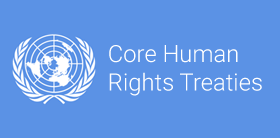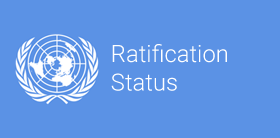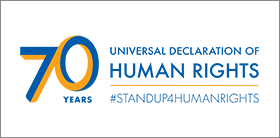8 January 2009 – The peace process in Nepal remains a fragile one, with critical agreements on the reintegration of former Maoist combatants still lacking, and will continue to need United Nations assistance, according to Secretary-General Ban Ki-moon, who proposes an extension of the UN presence there, albeit at a slightly reduced capacity.
In a new report released today, Mr. Ban recommends that the Security Council extend the UN Mission in Nepal (UNMIN) for another six months, with the Mission being subject to further downsizing from 23 January, as requested by the Nepalese Government.
UNMIN was established in early 2007 as a special political mission tasked with helping advance the peace process in Nepal, which endured a decade-long civil war that claimed an estimated 13,000 lives until the Government and the Maoists signed a peace deal in 2006.
Following landmark elections last April, the newly-formed Constituent Assembly voted in favour of a federal democratic republic, leading to the abolition of the monarchy and the election of Ram Baran Yadav as the country’s first President.
In addition to assisting with the elections, UNMIN has also been tasked with the monitoring of the management of arms and armed personnel of the Communist Party of Nepal-Maoist (CPN-M) and the Nepal Army.
Mr. Ban, who witnessed the country’s progress firsthand during a visit to Nepal in October of last year, expresses his disappointment at having to “report so little progress regarding the issues most relevant to the mandate of UNMIN.
“It is particularly regrettable that the political parties have to date failed to reach agreement regarding the special committee to supervise, integrate and rehabilitate the Maoist army personnel so that it can begin its important work,” he states.
“That is one important indication of the wider tensions among the political parties, which could imperil the completion of the peace process and the drafting of the Constitution,” he adds.
The Secretary-General notes that he and his Special Representative for Nepal, Ian Martin, have repeatedly drawn attention to the fact that an exit strategy for UNMIN requires decisions regarding the future of those in the Maoist army cantonments and have urged that that issue be addressed through the agreed process – the special committee.
An advisory team that visited the country last December found that all the Nepalese interlocutors were looking to the UN to play a role in assisting the special committee once it is functioning, and believed that the world body has an important role during the process of integration and rehabilitation, as well as during the discharge of minors and others disqualified by the UNMIN verification process.
“It is clear that the United Nations, if it is not to risk jeopardizing the peace process, cannot immediately terminate the support it has been providing through UNMIN as requested by the Government of Nepal,” states the Secretary-General.
“But neither can the United Nations be expected to maintain indefinitely the monitoring of arms and armed personnel while the process for deciding the future of the former combatants is further delayed,” he writes.
Mr. Ban proposes that the number of arms monitors contributed by Member States should be retained at the strength of 73, authorized when UNMIN was downsized in July 2008, but that most of the 18 remaining civilian posts which have been filled by retired military officers should be abolished as at 23 January 2009.
In addition, the Mission’s Political Affairs Office will be further reduced, and a number of other substantive posts eliminated, achieving a reduction of one third in substantive posts. The support services will also be substantially reduced and remaining functions increasingly performed by national staff; international support posts will be approximately halved.
Furthermore, with the additional downsizing, UNMIN would be headed by a representative, instead of a special representative of the Secretary-General.




